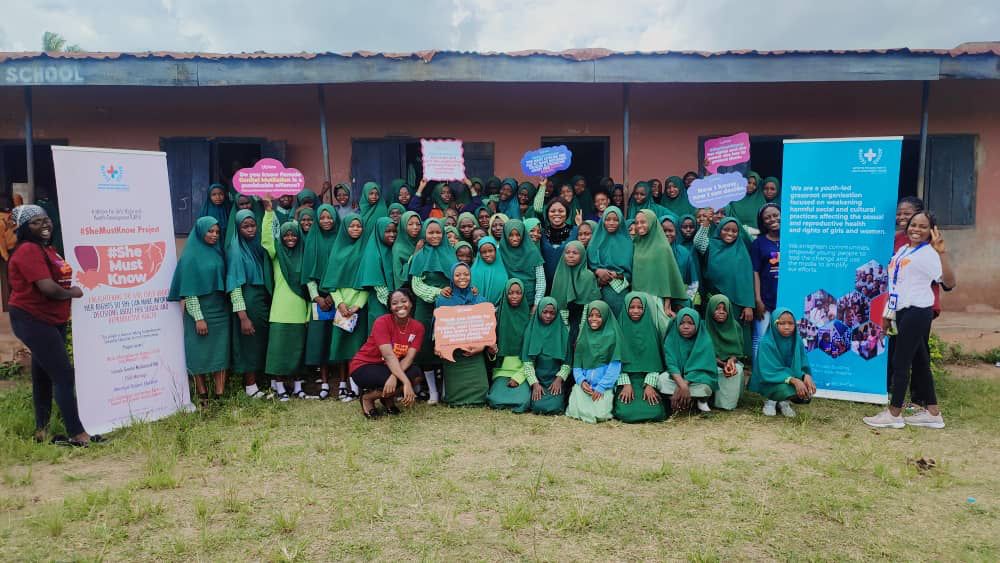
In commemoration of the United Nations’ International Day of the Girl Child, a youth-led organisation, Initiative for Girl’s Rights and Health Development (IGRHD) has launched a project to promote girl child education and end harmful traditional practices.
[d]
The organisation launched its ‘Educate Don’t Mutilate’ Scholarship today at Oduduwa College, Ile Ife, Osun state after the previous ‘She Must Know’ Project in 2021. The latter project is designed to help girls make informed choices about their sexual and reproductive health after the discovery of the high prevalence of unplanned pregnancies and misconceptions about reproductive health.
The Executive Director, IGRHD, Ayodeji Bello-Awodoyin disclosed that the ‘She Must Know’ project had an impact record of 2,000 after engaging students from more than 30 secondary schools across Osun state. According to UNICEF, Nigeria accounts for the third highest number of girls and women that have undergone FGM with a record of 19.9 million survivors.
“Girls between ages 0- 14 are at higher risk of FGM compared to other age groups. The ‘Educate Don’t Mutilate’ Scholarships is an effort to campaign and reduce the prevalence and acceptance of Female Genital Mutilation,” Bello-Awodoyin said.
The practice of FGM/C is highly rooted in myths, poverty, and gender inequality with education as the primary solution. Bello-Awodoyin stressed that there is an urgent need to not only enroll but also keep more girls in school to successfully change the narrative.
“We need to promote girl child education to garner more success stories of positive behavioural and social changes.”
While the organisation carries out community dialogues, anti-FGM TV and radio programmes, and various forms of enlightenment projects, Bello-Awodoyin insists on supporting a good number of girls from rural communities to be in school.
“Mobilising out-of-school girls can be difficult and it makes the effects of our school sensitisation projects short-lived but if all girls are in school, we can easily access them and impact them positively as there is a need to enroll and keep more girls in school to successfully change the narrative,” Bello-Awodoyin said.
[ad unit=2]






